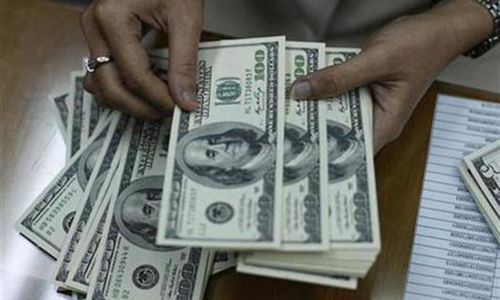ISLAMABAD: Pakistan’s merchandise trade deficit in May ballooned by 134 per cent from what it was a year ago on the back of lower export proceeds and higher than expected imports, commerce ministry data showed on Wednesday.
The monthly deficit reached $3.432 billion in May 2021 from $1.467bn a year ago raising fear it will create a problem for the government in controlling external accounts. In rupee terms, the trade deficit was posted at 125.2pc on a year-on-year basis.
The trade gap has been widening since December 2020. The surge in trade deficit is mainly led by exponential growth in imports with comparative slow growth in export proceeds from the country.
Between July and May 2021, the trade gap widened by 29.5pc to $27.275bn in the 11 months of 2020-21 from $21.065bn over the corresponding period of last year.
While in FY20 the country’s trade deficit had narrowed to $23.099bn from $31.820bn, this target was already crossed in 10 months of FY21, indicating serious pressure on the external side due to rising imports.
The import bill went up by 77.8pc to $5.090bn in May 2021 from $2.863bn over the corresponding month of last year. On a month-on-month basis, the import bill decreased by 3.23pc.
Between July and May FY21, the import bill increased by 22pc to $49.839bn this year as against $40.866bn over the corresponding months of last year.
The import bill is rising mainly due to the increased imports of petroleum, wheat, sugar, soybean, machinery, raw material and chemicals, mobile phones, fertilisers, tyres and antibiotics and vaccines.
Last month the import of duty-free imports posted growth of 73.78pc and dutiable imports grew 94.84pc on a year-on-year basis. It clearly reflects that the robust growth in duty-free imports is mostly related to raw materials and semi-finished products duty on which duties and taxes were exempted in last year’s budget.
The increase in dutiable imports is because of an increase in regular imports of smuggled prone items such as tyres, textiles and tea. As a result, the customs duty collection in the month under review also posted robust growth.
The continuous decline in imports in the first two years of the incumbent government had provided some breathing space to the government in managing external accounts despite the downward trend in exports. However, rebounding imports are likely to create pressures on the external side.
The growth in remittances at the movement will be sufficient to finance the import bill.
However, it is believed that the current account deficit in FY21 will remain in the range of $4bn to $6bn by the end of June.
Exports posts a growth year-on-year 18.7pc to $1.657bn in May 2021 from $1.396bn over the last year. On a month-on-month basis, exports dipped by 25.3pc. The month-on-month dip is mainly because of a substantial drop in exports proceeds in May despite lower base in May 2020 that provided a lower base for higher growth.
In reality, the month-on-month decline is a worrisome factor for policymakers.
However, in the 11 months of FY21, export proceeds rose by 14pc to $22.563bn as against $19.801bn in last year’s corresponding period.
Adviser to the prime minister on commerce Abdur Razzak Dawood in a statement said the credit of this increase in export proceeds went to the exporters for maintaining the momentum of country’s exports during a year marred by contraction and uncertainty in major markets.
Mr Dawood said the dip in exports to below $2bn mark was because of the extended Eid holidays, aimed at curtailing the spread of Covid.
The value-added sector has already warned the government about a possible shortage of raw materials in coming months. The stakeholders warned the government that if cotton yarn was not made available in the required quantity, export orders in hand would eventually be diverted to rival countries. In the last Economic Coordination Committee meeting, the government had exempted duty and taxes on the import of cotton yarn.
Published in Dawn, June 3rd, 2021
















































